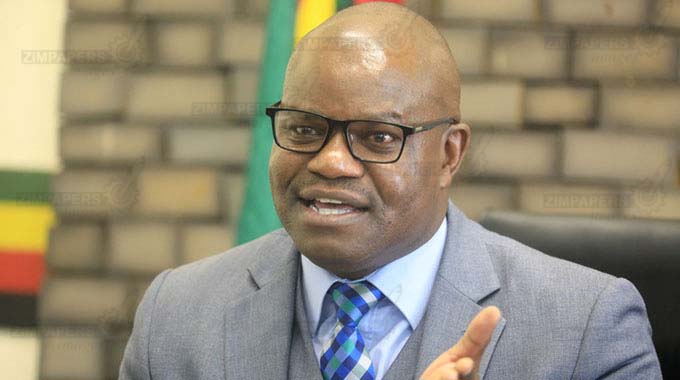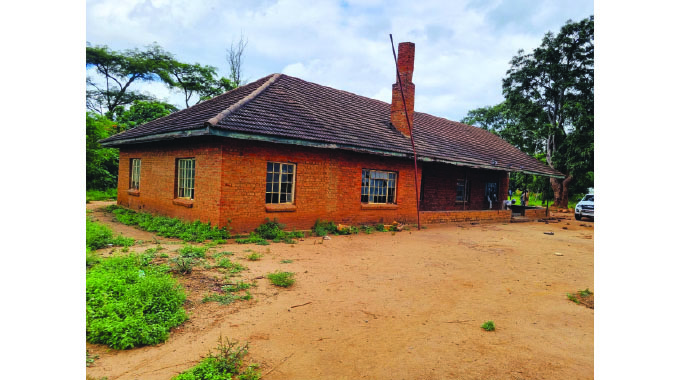Nyerere: Teacher who shaped Sadc resistance

Kudzaishe Muhamba and Marytise Vambayi
Tanzania’s first president, the late Julius Kambarage Nyerere, affectionately known as Mwalimu (the teacher), would have turned 100 years yesterday.
Mwalimu Nyerere was among the founding fathers of Southern Africa’s liberation movements. He was one of the pioneering fathers of the Southern African Development Coordination Conference (SADCC), which later became the Southern African Development Community (SADC) in 1992.
Born in Butiama near Lake Victoria on April 13, 1922, Nyerere’s death on October 14, 1999 caused grief among Africans across the continent and beyond, as they were united in his loss.
Known as Baba waTaifa, Father of the Nation, Mwalimu Nyerere was the force behind the independence of Tanganyika on December 9, 1961 and its unity with Zanzibar on April 26, 1964 to create the United Republic of Tanzania.
Nyerere was a founding father of the Organisation of African Unity (OAU) in 1963, now the African Union (AU) since 2002.
He hosted the OAU Liberation Committee in the safety of Tanzania to support the decolonisation of the continent. He, notably, supported those countries that had to take up arms against colonialism.
Nyerere’s dedication and commitment to the liberation of Southern Africa, African unity and Pan-Africanism remains unsurpassed.
To mark the celebration of Nyerere’s 100th birthday, Zimbabwe National Liberation War Veterans Association (ZNLWVA) national chairperson, Ambassador Christopher Mutsvangwa, said in an interview President Nyerere laid the foundation for the total liberation of the African people.
“I particularly liked the aspect of reign, and about young people and what they should learn on what Tanzania continues to do for Africa,” Ambassador Mutsvangwa said.
He added that from an African perspective opportunities for trade availed through African Continental Free Trade Area (AfCFTA), would help in building strong nation states, since humanity is bonded through the selling of goods and services.
Ambassador Mutsvangwa said from about 1800 to 1900 Zimbabwe was a big trading nation. The nation traded with people from across the Indian Ocean, including the Arabs.
“So, as a trading nation our language is a contributor to Swahili because of that trade. Our main language is Shona. Shona is not a tribe, but it is a language, and language can only grow with trade; it doesn’t grow because of marriages,” Ambassador Mutsvangwa said.
“Because we traded for so many years between the Kalahari and the Indian Ocean, and between Zambezi and Limpopo rivers, we then had a language called Swahili, which is a language of trade.”
He said Mwalimu Nyerere understood all the elements as an intellectual, adding that the challenge Africa faces today is seeking unity through goods and services, without which the people of Africa will be dismembered.
Calling on Africa to emulate China’s 40-year journey to prosperity, Ambassador Mutsvangwa said everything any African nation should do must be centred on the socio-economic growth of the continent.
“Africans can trade, Africans can buy from each other, Africans can stake out their policies in international trade the way China has done,” he said.
On freedom, he indicated that thousands of lives were lost for the sake of the Zimbabwean nation.
“The price of freedom is called prosperity. If you don’t deliver on prosperity, you are letting those who died for the nation down,” said Ambassador Mutsvangwa.
He commended the efforts being put in building enabling infrastructure, saying the individual’s life doesn’t matter until the entire nation becomes prosperous.
Zimpapers chairperson, Mr Tommy Sithole, said he was grateful for the bond Zimbabwe and Tanzania shared, which has seen many Zimbabweans becoming part of the great history of Tanzania.
“Our gratitude goes to Mwalimu Nyerere in terms of making Zimbabweans be part and parcel of his new administration,” he said.
“For the past 30 years, the national record holder for 100 metres in Tanzania is a Zimbabwean called Norman Chihota. He represented Tanzania in national trials in Arusha and also in the Olympics from 1974 in Munich. His record still stands today.”
On Mwalimu Nyerere’s contribution to the liberation of Africa, Mr Sithole made reference to Idi Amin, who invaded Tanzania in 1978, and his “antics in Uganda.”
“President Nyerere was opposed to Amin, but he didn’t think of taking any military action against him. Instead, he facilitated the likes of Apollo Milton Obote and others, who wanted to liberate themselves in Uganda, to do whatever they wanted to do in Tanzania,” said Mr Sithole.
Nyerere’s support of the liberation of Africa goes way back when Amin invaded Kigoma.
“What is important about that retaliation is that 50 percent, if not more of the Tanzanian army, which fought back and won against Idi Amin’s well-armed soldiers was made up of volunteers, Tanzanian volunteers,” he said.
Mr Sithole pointed out that people would leave their jobs, organised themselves and joined the liberation in detachments of up to 100 percent volunteers.
On the day of the liberation ceremony proud Tanzanian volunteers who had fought Idi Amin celebrated in waves.
Mr Sithole said Mwalimu Nyerere inculcated a sense of ownership and pride in Tanzanians; a sense of really being Tanzanian.
“Tanzania was one of the very few countries in Africa that had something called liberation tax,” he said.
“Every Tanzanian, who worked, had to pay a tax, which was a contribution to the liberation struggle, and that income was sent to the liberation office ran by General Hashim Mbita.”









Comments